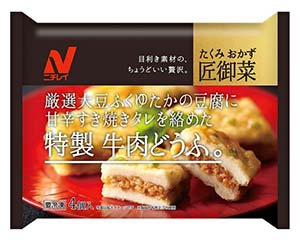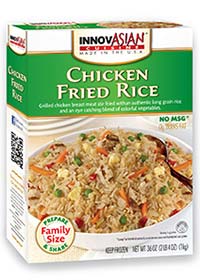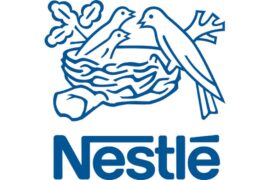 The operating profit of Tokyo-headquartered Nichirei Corporation is expected to soar by approximately 40% to 30 billion yen ($271 million) in the current fiscal year ending on March 31, according to a report in the Nikkei Asian Review. Rising demand for prepared frozen food products consumed at home, which account for 10% of group sales, was cited as a key reason for the robust performance.
The operating profit of Tokyo-headquartered Nichirei Corporation is expected to soar by approximately 40% to 30 billion yen ($271 million) in the current fiscal year ending on March 31, according to a report in the Nikkei Asian Review. Rising demand for prepared frozen food products consumed at home, which account for 10% of group sales, was cited as a key reason for the robust performance.
“The profit would mark an all-time high for the second straight year and beat projections by about 1 billion yen,” reported Nikkei. “Demand for prepared frozen foods is rising as more seniors and others eat alone at home. More efficient production of the company’s mainstay offerings also will buoy earnings.”
Established on December 1, 1945, Nichirei employs over 6,000 people in approximately 80 subsidiaries around the world. It ranks as the frozen food market leader and the No. 1 cold storage logistics operator in Japan.
In a teleconference last month addressing third quarter results, the company announced that sales of frozen fried rice dishes and other rice products continued to increase strongly in the household sector. For the year, it is anticipated that rice dish revenues will climb 20% – well above the industry average of 7%.
In the commercial sector (institutional and foodservice), sales of processed chicken products rose to meet growing demand for home meal replacements (HMR).
 Overseas, the InnovAsian Cuisine brand in the USA registered positive sales results in the frozen Asian foods segment, but revenues declined due to the exchange rate conversion from the strong yen. Nichirei acquired 51% ownership of Tukwila, Washington-based InnovAsian Cuisine Enterprises LLC in 2012.
Overseas, the InnovAsian Cuisine brand in the USA registered positive sales results in the frozen Asian foods segment, but revenues declined due to the exchange rate conversion from the strong yen. Nichirei acquired 51% ownership of Tukwila, Washington-based InnovAsian Cuisine Enterprises LLC in 2012.
Operating income rose as a result of higher sales of prepared frozen foods and greater production efficiency, as well as lower food ingredient and procurement costs.
Logistics Business
On the logistics front, Nichirei reported that regional cold storage operations in Japan are driving profitability. Revenues climbed on a boost from a newly built transfer center (TC) that was activated in April of 2016.
Earnings, which had been declining, rose as a result of proactive efforts to capture the growing demand for storage space in the Tokyo metropolitan area, along with stable operations at the new TC. The engineering business is also receiving construction contracts in line with plans.
Exchange rate losses were logged overseas, however, due to the weak euro’s negative effect on both sales and earnings. On a positive note, in Poland transaction volume expanded for store delivery services to major retail customers.
Marine Products
Transaction volume steadily increased for shrimp, a mainstay product in the seafood sector, significantly contributing to earnings. Diversification in procurement of processed shrimp products implemented in the previous fiscal year also contributed to improved profitability.
Meat and Poultry
Earnings rose sharply as the company continued to focus on profitable sales of imported chicken. Revenues also increased for processed foods.





